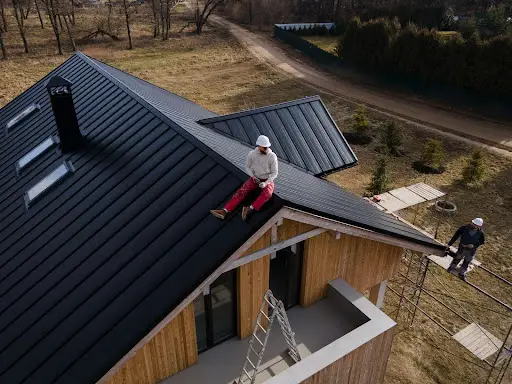
What Every Homeowner Should Know About Roof Inspections
Many homeowners only think about their roofs when a leak appears or after a storm causes visible damage. Your roof is your home’s first line of defense against harsh weather, water damage, and energy loss. Yet, it’s also one of the most overlooked parts of a property when it comes to regular maintenance.By then, the repair costs can be significantly higher than they would have been with routine inspections. Roof inspections are an essential part of maintaining the safety, longevity, and value of your home. In this blog, we’ll cover why they matter, what they involve, and how often you should schedule one.
What a Roof Inspection Involves
A professional roof inspection is much more thorough than a simple visual check from the ground. Here’s what roofing experts typically look for:
- Shingles or Roofing Material
Inspectors check for missing, cracked, or curling shingles, as well as signs of granule loss on asphalt shingles. In the case of metal, tile, or slate roofs, they’ll look for cracks, rust, or loose pieces. - Flashing and Seals
Flashing around chimneys, skylights, and vents is inspected for cracks or deterioration, which are common sources of leaks. - Gutters and Drainage
Proper drainage is critical. Gutters, downspouts, and valleys are checked for blockages, leaks, or pooling water that could damage the roof structure. - Attic and Interior Check
Inside the home, inspectors often check the attic for signs of moisture, mold, insulation damage, or poor ventilation. - Structural Integrity
They’ll look for sagging areas, signs of water damage, or other issues that could compromise the roof’s stability.
Why Roof Inspections Matter
- Prevent Costly Repairs
Small issues—like a loose shingle, cracked flashing, or clogged gutter—can escalate quickly into major problems if ignored. Regular inspections help catch these early, saving you from expensive repairs or even premature roof replacement. - Increase Roof Lifespan
A well-maintained roof can last 20–50 years depending on the material. Inspections ensure that small maintenance tasks are performed regularly, extending the life of your investment. - Protect Your Home’s Value
Whether you’re planning to stay long-term or sell your property, a healthy roof improves curb appeal and reassures potential buyers. It’s a visible sign that your home is cared for. - Ensure Safety and Comfort
Undetected roof issues can lead to water intrusion, mold growth, or structural weakening. Inspections help keep your home safe, dry, and energy-efficient.
How Often Should You Schedule a Roof Inspection?
Most roofing professionals recommend at least one roof inspection per year, preferably in the spring or fall when weather is milder. However, certain situations may call for more frequent checks:
- After Severe Weather
High winds, hail, or heavy storms can cause damage that isn’t immediately visible but may worsen over time. - If Your Roof is Aging
Roofs nearing the end of their lifespan should be inspected more often, as they’re more susceptible to damage. - Before Buying or Selling a Home
A roof inspection gives peace of mind during real estate transactions and can even be a negotiating factor.
DIY vs. Professional Inspections
While homeowners can perform quick visual checks from the ground—like spotting missing shingles, clogged gutters, or obvious damage—nothing compares to a professional inspection. Roofing experts have the tools, training, and safety equipment to identify problems that most homeowners would miss.
Attempting to walk on your roof without proper training can also be dangerous and may even cause accidental damage. For peace of mind and safety, leave detailed inspections to the professionals.
Signs You May Need an Immediate Roof Inspection
In addition to regular maintenance, you should call a roofing company immediately if you notice:
- Water stains on ceilings or walls
- Mold or mildew in the attic
- Sagging rooflines
- Missing or damaged shingles
- Excessive granules in gutters
- Rising energy bills (a sign of poor insulation or ventilation)
Final Thoughts
Roof inspections are not just about finding problems—they’re about preventing them. By scheduling regular inspections with a trusted roofing company, homeowners can avoid costly repairs, extend the life of their roof, and ensure their family’s safety and comfort.
Your roof is one of your biggest investments. Protect it with the professional care it deserves.
